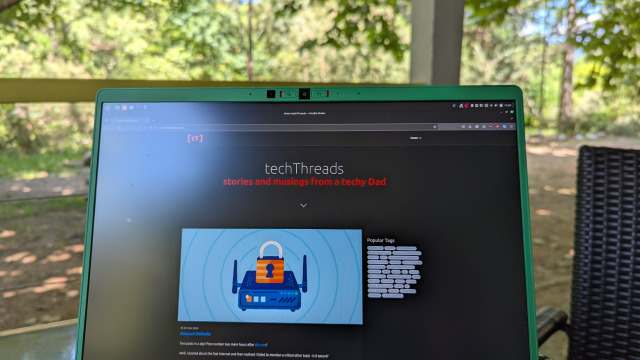In the era where Australia was being explored, there was an explorer named Hamilton Hume or Hamy as his friends liked to call him. Hamy wasn't only an explorer, he was an avid collector of potholes. Large potholes, small potholes. Potholes that will just inconvenience you up to potholes that will burst a tyre and dint a rim, Hamy collected them all. Hamy's dream was to one day arrange his collection of potholes into a pathway that others could follow. It's in memory of Hamy's brave exploration that the Hume Highway has been created as a series of interconnected potholes, so Hamy's dream can live on.
True story.
The story so far
After last week's trip to the Gold Coast, we're now officially on holidays. That means the trip up the Hume to Bright, part of our regular pilgrimage. This year is different however, after taking a nasty fall my wife is nursing an ankle injury and needs to get around on crutches. This means a different speed of holiday, it also means my usual "tech heavy" approach (even when disconnecting, can't stop being a geek) has become a little more critical. This holiday will be more of a stop and slow down, potentially with a bit more time spent in and around the accommodation.
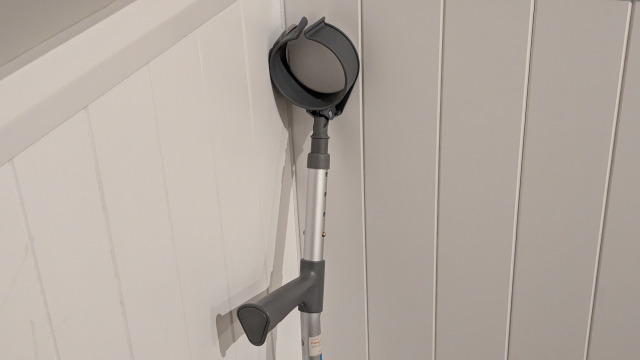
What to pack to prepare for everything
With our luggage going into the back of the car, rather than weighed, measured and scrutinised at the airport, I had a bit more latitude to pack heavy. What does that look like? Well, first I've packed the kitchen sink from a "document this trip" perspective. So many many cases brandishing DJI stickers.
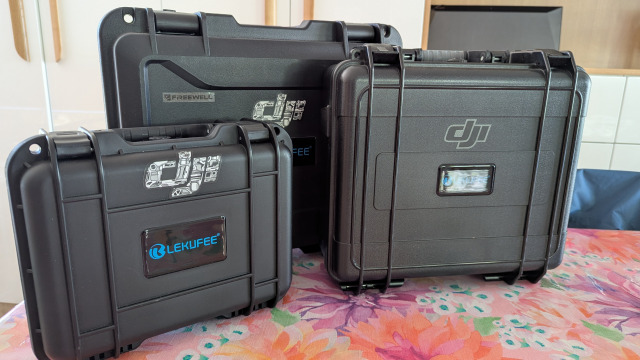
In addition to all of my recording gear, I have laptops, a travel router, even a chromecast so we can sit down in the evening and watch a show while the kids sleep.
I wasn't quite prepared for how tricky it was going to be to get connected, making it a contrast to last week's post where I was admiring the fast and ubiquitous internet everywhere. In a way I'm quite glad to be in Alpine Victoria without blisteringly fast internet - except to watch a show in the evening of course.
Pulling together the connection
Getting the basics set up was straight forward. The camp site we're staying at has a network of Wifi point to point connections scattered around (specifically point to point, not a mesh) and all units are outside. After some trial and error, I found my travel router got the best signal strength when propped up on some cereal boxes near the kitchen Window.
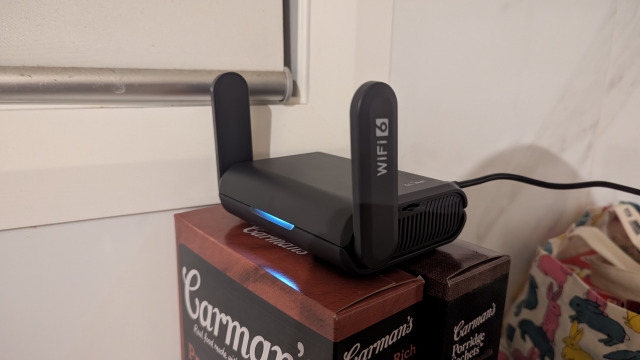
I then unpacked my chromecast and got to connecting it. If you ever want to see dust, take a look behind the TV when you stay somewhere next.
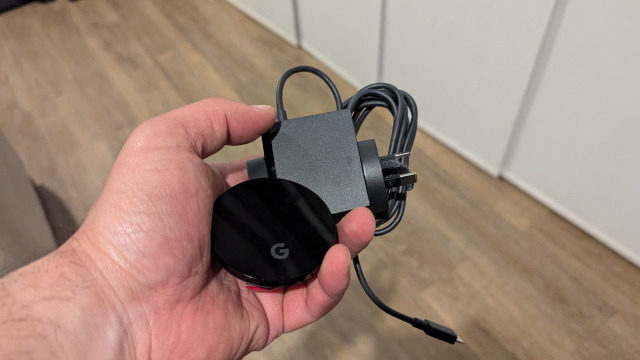
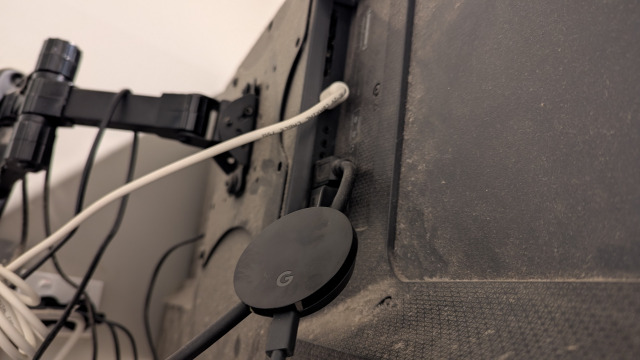
95% of the time, that's it and I'll be online, but this isn't that 95%. The first issue was a flapping wifi connection, a link would be established, then quickly drop out. The next issue was when a connection was established, sometimes the IP address would be a 10.x.x.x IP (this is correct and working) and other times it would be a 192.168.x.x IP (this is incorrect and doesn't work).
The different IPs speak to either someone masquerading as the camp wifi, or there's a rogue DHCP server on the network. Neither are great, and at the time I was troubleshooting this it was late at night and I just wanted to sit down.
A quick wander outside shows the outdoor wifi equipment is the strangest mix of old and new. A Ubiquiti NanoStation Loco M900 (it took WAY to much googling to work out this model, Ubiquiti no longer lists it) which dates the unit at approx 15 years old ± 5 years. Paired with a Ubiquiti Unifi U6 Mesh Pro.
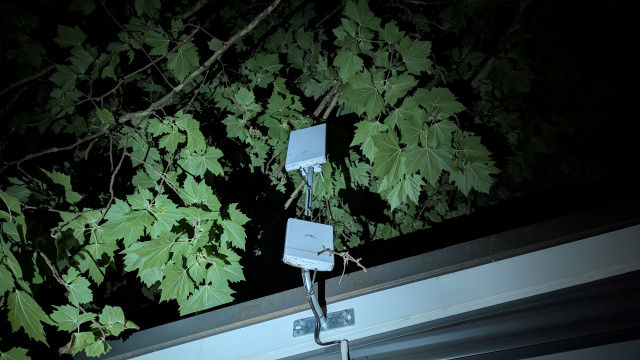
The M900 is a strange unit, it's a 900Mhz point-to-point wireless unit, making it slower than typical 2.5Ghz or 5Ghz equipment, but with a more penetrating signal, and capable of working through dense foliage and other obstructions. In other words, line of sight is a nice to have, not a must have. This is working as a backhaul, the U6 Mesh is providing client connectivity and working as a normal access point. While out there at night, I could see that the U6 Mesh had it's blue status LED occasionally blinking - a quick look online and we know that the AP is isolated / doesn't have an Internet connection.
Follow the cables to the junction box where everything connects.
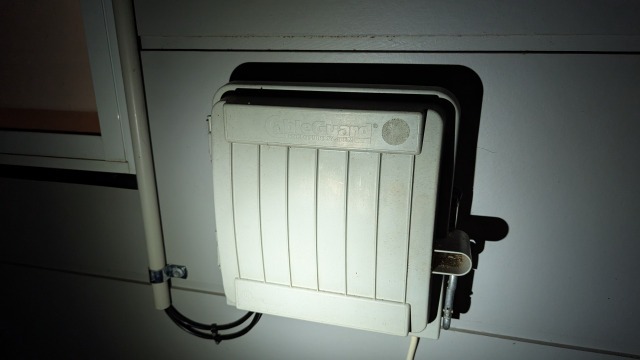
It's unlocked, so take a quick look inside and confirm the M900 and U6 are just directly connected together.
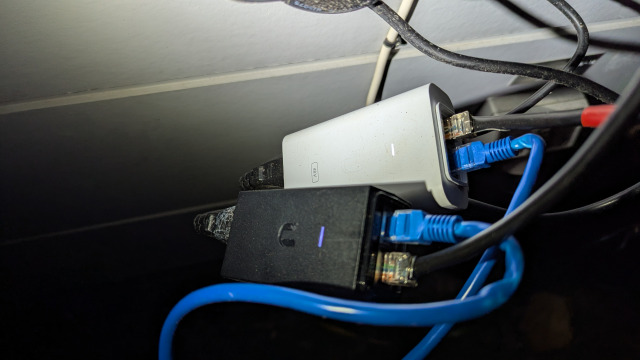
With all this confirmed and with the U6 already offline there's little risk in power cycling everything so in the spirit of "have you tried turning it off and on again?" I shut everything down waited 10 seconds and then restored power.
The U6 Mesh came back with a solid blue LED - success! I could now establish a reliable link with my travel router too.
But the excitement was short lived, these speeds are best described as "meh for a DSL link" and proved very difficult to stream with.
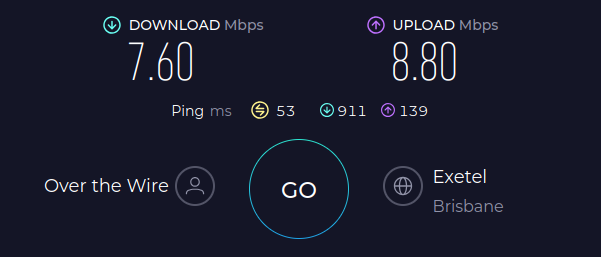
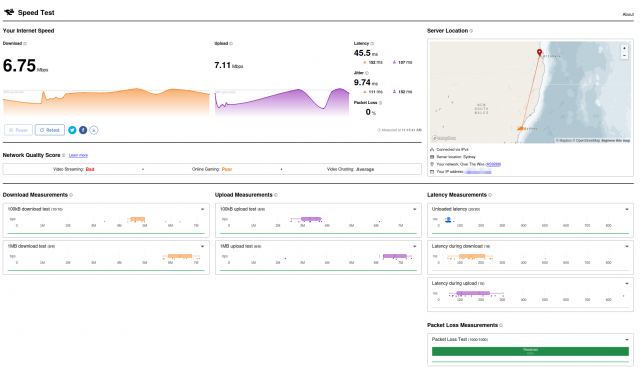
A little more trouble shooting
In the light of day I decided to try and untangle what's going on.
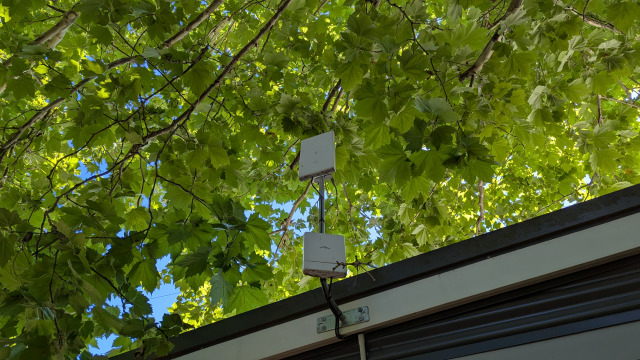
A quick visual inspection of the U6 Mesh and the M900 confirm that both look totally fine.
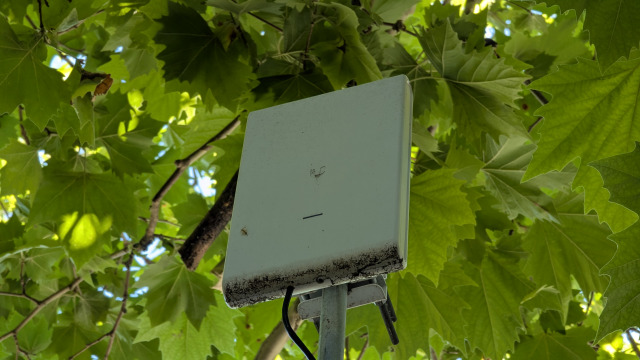
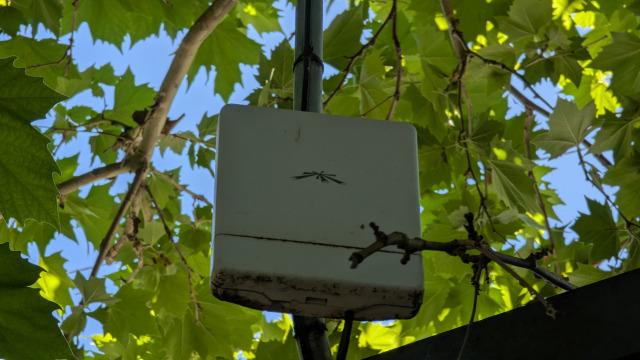
Next step was to pop my action camera on a long pole and get a closer look at things.
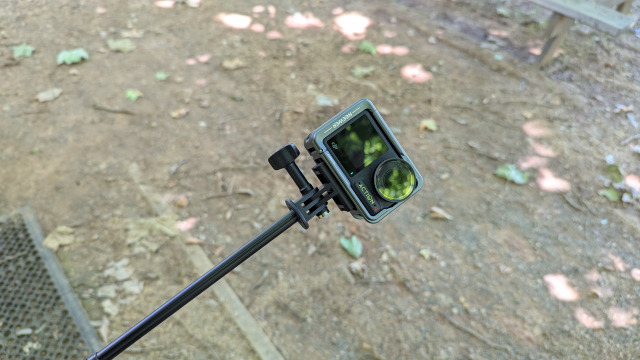
It's a bit difficult to see as the Green LEDs have faded quite a bit over time, but the signal strength indicators on the back of the M900 seem to indicate a solid full link.
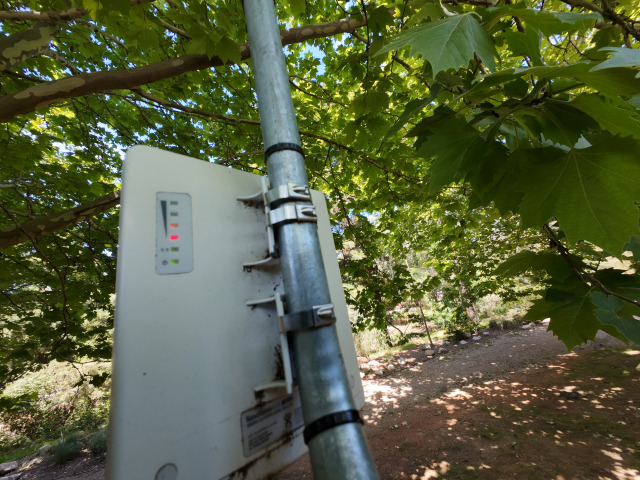
Taking a look from the other angle, I believe I can see the out-building the M900 is linking back to. It's only a few hundred meters away and the direct line of sight has only light foliage. Unfortunately this is the weak link and not something that can be fixed without replacing hardware, the M900 is simply too conservative a unit for this point to point link.
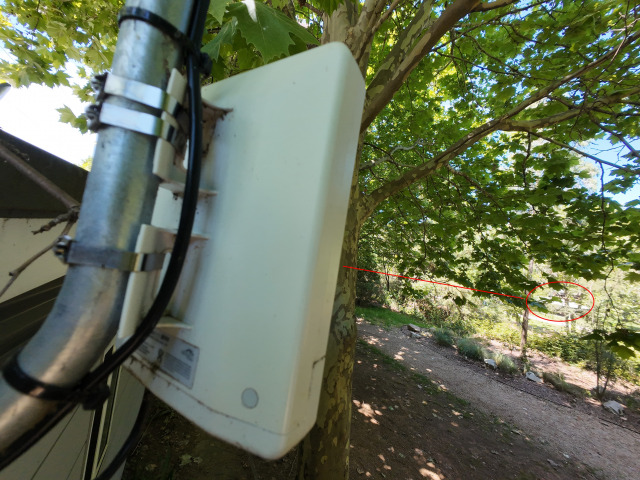
So with my suspicions confirmed and not much in the way of options to fix up the connection, I fell back to plan B - tether my mobile for connectivity and WOW what a difference that made.
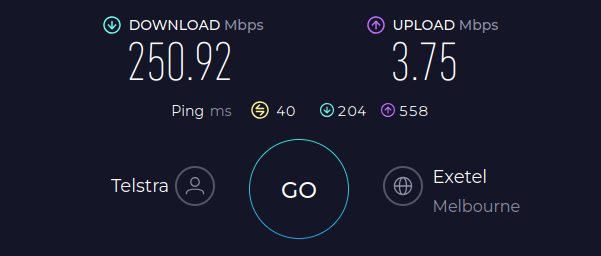
Now I can do things like upload this blog post - I'll just have to keep a close eye on my data cap.
